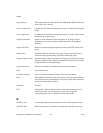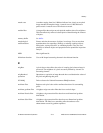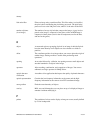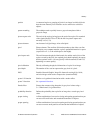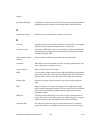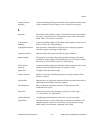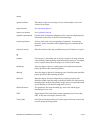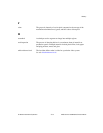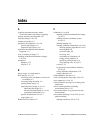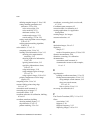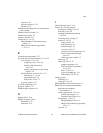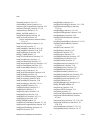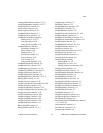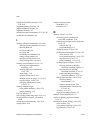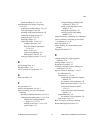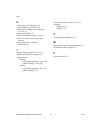Index
IMAQ Vision for LabWindows/CVI User Manual I-6 ni.com
imaqWriteVisionFile() function, 5-15,
5-25, 6-10
imgInterfaceOpen() function, 2-6
imgSessionOpen() function, 2-6
imgSnap() function, 2-6
instrument reader measurements, 5-27 to 5-28
invalidation of calibration, 6-8
L
learning calibration information, 6-5 to 6-8
choosing learning algorithm, 6-6 to 6-7
choosing ROI, 6-6
correction table, 6-8
error map, 6-8
invalidation of calibration, 6-8
setting scaling method, 6-8
specifying scaling factors, 6-6
using learning score, 6-6 to 6-8
learning color information, 3-9 to 3-13
choosing color representation
sensitivity, 3-12
choosing right color information,
3-9 to 3-10
entire image, 3-10
ignoring learned colors, 3-13
multiple regions in image, 3-11 to 3-12
region in image, 3-10 to 3-11
specifyinginformationtolearn,
3-10 to 3-12
learning template images
color pattern matching, 5-20 to 5-21
pattern matching, 5-15
Line tool (table), 3-2
lines, finding points along edge, 5-9 to 5-11
locating objects to inspect. See machine
vision.
lookup table transformations, 2-9 to 2-10
lowpass filters, 2-10
lowpass frequency filters
attenuation, 2-12
truncation, 2-12
M
machine vision, 5-1 to 5-29
converting pixels coordinates to
real-world coordinates, 5-26
defining region of interest for search area,
5-8to5-9
interactively, 5-8
programmatically, 5-9
displaying results, 5-28 to 5-29
finding measurement points, 5-9 to 5-25
color location, 5-25
color pattern matching, 5-18 to 5-25
edge detection, 5-9 to 5-12
pattern matching, 5-13 to 5-18
locating objects to inspect, 5-2 to 5-7
choosing method for building
coordinate transform (figure), 5-7
edge detection for building
coordinate transform, 5-3 to 5-5
pattern matching for building
coordinate reference, 5-5 to 5-6
making measurements, 5-26 to 5-28
analytic geometry
measurements, 5-27
distance measurements, 5-26
instrument reader measurements,
5-27 to 5-28
overview, 5-1 to 5-2
steps for performing (figure), 5-2
Machine Vision function tree, 1-4
masks, for defining regions of interest,
3-6to3-7
measurement points, finding, 5-9 to 5-25
color location, 5-25
color pattern matching, 5-18 to 5-25
edge detection, 5-9 to 5-25



